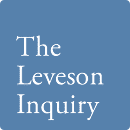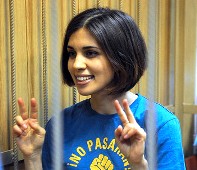Leveson: what have we learned, and where to next?
 As the theatrics of the Leveson Inquiry draw to a close, Marta Cooper looks back on the hundreds of hours of evidence in court 73
As the theatrics of the Leveson Inquiry draw to a close, Marta Cooper looks back on the hundreds of hours of evidence in court 73
 As the theatrics of the Leveson Inquiry draw to a close, Marta Cooper looks back on the hundreds of hours of evidence in court 73
As the theatrics of the Leveson Inquiry draw to a close, Marta Cooper looks back on the hundreds of hours of evidence in court 73
In an unexpected move on 4 July, the National Authority for Information and Communication Reform (INRIC) put an end to its activities. INRIC was created after the fall of the 23-year rule of Zeine el-Abidin Ben Ali last year to help reform the Tunisian media landscape by proposing a set of recommendations and legislation which would guarantee the Tunisian citizen’s right to a “free, pluralistic, and fair media”.
In a communiqué, INRIC said:
In the absence of practical steps reflecting a real political will which would build a free and independent media committed to international standards, the authority announces its rejection to continue serving as décor at a time when the media sector keeps moving backwards. Thus it [the authority] does not see the point of carrying on its missions.
The media freedom body has had some sharp disagreements with PM Hamdai Jebali’s interim government. On 2 November 2011 the former interim government of PM Beji Caid el Sebsi approved decree-laws drafted by INRIC which guarantee press, print and publishing freedom and the creation of an independent authority for audio-visual communications. These two laws have not yet been implemented.
On two occasions, the current government appointed heads of public media institutions without consulting any media bodies or syndicates. For INRIC, this was a blow to public media independence.
Index on Censorship spoke to Hichem Snoussi, a member of the dissolved INRIC, and representative of the freedom of expression organisation Article 19.
Index: Can you briefly summarise the most significant work results of INRIC?
Hichem Snoussi: Decree-law 41 on the right to access administrative documents, decree law 115 on press, printing and publishing freedoms, and decree-law 116 which stipulates that an independent authority for audio –visual broadcasting needs to be created, are among our major work results [unlike decree-laws 115 and 116, law 41 was implemented]. We also granted broadcasting licenses to 12 private radios and five private TV stations. In April, INRIC submitted a general report on the reality of the media landscape in Tunisia, and the need for keeping the reform process going.
INRIC does not want the executive branch to interfere with the media sector in general, and public media in particular, since the latter’s new mission should be scrutinising and questioning the government’s performance. This was a key point of disagreement between the government and INRIC.
Index: Last April, Rached Ghannouchi, leader of Ennahdha Movement, which heads the three-party coalition government, suggested the privatisation of public media institutions. There are those who have speculated that by privatising the public media sector, Ennahdha would seek to impose a certain editorial line which would serve its political interests. What was INRIC’s reaction to such a suggestion?
HS: We rejected the suggestion, because such proposal would only seek to put pressure on public TV journalists, and push them back to square one, the square of propaganda, and marketing for a certain point of view. When it was made clear that this silly proposal is not open to discussion, the government resorted to the appointment method. The government has succeeded in appointing heads of all public media institutions, in light of the non-implementation of the decree-law 116 stipulating that the appointment process is participatory and takes place according to measures set by skilled and competent figures [from the media sector].
Index: What role for the current government in the non-implementation of decree-laws 115 and 116?
The government abused its powers, and broke the law in an authoritarian manner by not implementing these decree-laws which gained the satisfaction of different international freedom of expression organisations like Article 19, the BBC and the Open Society. The government did not only stand in the way of implementing these decree-laws, but it went further by breaking law 115 by creating a committee for granting professional press cards. This committee is illegal because the government appointed Mr. Kazdaghli, who is in charge of media in the Prime Ministry’s office, as its president instead of a judge. [Chapter 8 of law 115 stipulates that an independent committee presided by a judge from the administrative court should take in charge granting journalists professional press cards.]
Index: During a press conference [on 6 July] Lotfi Zitoun, an advisor to the PM, said that the decision on whether or not to implement decree laws 115 and 116 lies in the hands of the National Constituent Assembly (NCA) [elected on 23 October 2011]. Is this a legitimate reason for not implementing the two laws?
HS: There is no doubt that the NCA as an elected institution reflecting the people’s democratic will has the right to examine decrees and valid laws. However, the NCA is supposed to amend and support democratic processes, within the framework of these legal texts. Deploying the majority pretext by the NCA as a way to thwart the establishment of a democratic path is a betrayal to the people’s will and the martyrs’ blood.
Index: The Islamist party Ennahdha (which controls more than 40 per cent of the parliamentary seats) has, in several occasions, called for the draft of a constitutional clause which would outlaw assaults on “the sacred”. In case the NCA passes such clause, to what extent would freedom of expression be threatened in Tunisia?
HS: In France, and Germany there is the Holocaust law which prohibits the denial of the Holocaust. If we are going to pass a law that condemns assaulting the “sacred”, we also need a law that criminalizes atheism accusations too. The “sacred” has to be defined in a very specific and detailed way. This definition cannot be expanded, so that it would not stand in the way of art and creativity. Today the debate on the “sacred” comes within an electoral propaganda, and aims at diverting the public debate from its direction. We do not need chains. We need freedom to face past wounds.
A village magazine has been barred from sale along the route of the 2012 Olympic cycling road race.
After the success of Bradley Wiggins, Chris Froome and Mark Cavendish in the Tour de France this year, thousands are expected to flock to Box Hill, a climb on the route of the road race, to cheer on British sport’s newest heroes. But local residents will not be allowed to sell their parish magazine, the Box Hill News, to the crowds.
According to the Leatherhead Advertiser, locals had planned an Olympic edition of their magazine, featuring an article by Keith Brock, a member of Great Britain’s 1948 London Olympic cycling team, with money raised going to charity.
But former editor June Austin says she was told that only official LOCOG sponsor merchandise would be allowed to be sold in the immediate vicinity of the race.
Ms Austin said:
“They said the whole area would be controlled by Locog so if you’re not an Olympic sponsor, you can’t sell anything there.
“It would have been such an opportunity to raise money for charities in the area and they’re missing out; all the money will go to the big companies.”
You have to wonder who’s running public relations for the London Olympic Games. While one can understand the need to protect commercial concerns, the games, which were sold to Londoners as inclusive, community-enhancing and all those nice things, are taking on the feel of an authoritarian imposition on peoples lives, rather than something to be celebrated.
Khamovnichesky court in Moscow has prolonged the detention of three Pussy Riot members until 12 January. The term of their arrest should have expired on 24 July, but the judge complied with the prosecution’s application to prolong the detention for 6 more months.

Pussy Riot’s Nadezhda Tolokonnikova
Maria Alekhina and Ekaterina Semutsevich have been accused of hooliganism for allegedly staging an anti-Putin performance in Moscow’s Christ the Saviour Cathedral. They face up to seven years in prison if convicted.
Friday 20 July was the first day of preliminary hearings on Pussy Riot case. The judge was expected to set the date for the trial; decide whether it would be closed, and consider several applications. But the only thing the judge did was satisfying the prosecution’s application on detention prolongation.
On Monday 23 July, Pussy Riot’s defence team will apply to call president Vladimir Putin and Patriarch Kirill, the head of the Russian Orthodox church, to the court as witnesses.
Dozens of Pussy Riot supporters gathered near the court building to protest against the band’s prosecution. Four of them were arrested after chanting out anti-Kremlin slogans and spreading pro-Pussy Riot leaflets.
Russian intellectuals and artists have condemned Pussy Riot members’ persecution in an open letter, stating the criminal case “compromises the Russian judicial system” and “undermines the confidence in Russian authorities”. The letter was signed by notable directors, writers and actors, including Viktor Shenderovich, Dmitry Bykov, Chulpan Khamatova, Mikhail Zhvanetskty, Eldar Ryazanov.
Not many of them attended Pussy Riot protest action on 20 July. As Grigory Chkhartishvily told Index on Censorship, it would be right for Russian intellectuals, who supported Pussy Riot in the open letter, to “devirtualise” so that the authorities could “note they exist”. He also said the Pussy Riot case raises the issue of the state using “medieval church standards instead of judicial ones”.
The number of protesters near the court on 20 July did not exceed 100 people. One of them, notable Russian poet Lev Rubinstein, told Index that in spite of international rights activists’ community concerns over Pussy Riot’s persecution, “most people in Russia are simply not aware of Pussy Riot case, or have heard the name and condemn the women without finding out the details.”
There are two reasons for this: Censorship on Russian television prevents the public from understanding the Pussy Riot story in detail, and the lack of solidarity between activists in Moscow and other Russian cities prevents others from protesting against the group’s prosecution outside the capital.